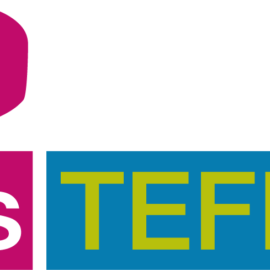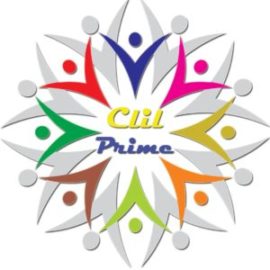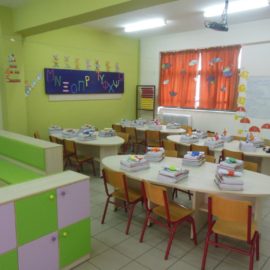
Within the PEAP programme, two books were designed for the 3rd grade of primary schools, namely Magic Book 1 and Magic Book 2. Magic Book 1 is intended for learners who are complete beginners and have not had any EFL classes in the previous two grades, whereas Magic Book 2 is intended for learners who started learning English in grade 1 and followed the PEAP curriculum. The Magic Books have been innovative in various respects: (a) they have a strong pedagogic orientation appropriate for learners of this age, (b) they follow an Eclectic approach, as they combine elements of various teaching approaches (Lexical Approach, Total Physical Response, Task-based Learning and Teaching, Content-Based Instruction, Multiple Intelligences Theory), (c) they promote young learners’ social literacies.
Both books follow a story-based framework as each unit has a different story that corresponds to a different content area or theme. There is a variety of activities related to the stories such as crossword puzzles, board game-like tasks, and other types of activities that promote not only the importance of meaning over structure but they also incorporate a holistic and experiential approach of learning. The philosophy of the coursebooks is not based on rote memorizing or overemphasising on structural aspects; much rather, they implicitly emphasize the importance of meaning, contextualization and the opportunities for the learners to experiment with language and use it for the purpose of communication (Alexiou & Mattheoudakis, 2015).
The books promote discovery learning and a process- and meaning-based curriculum. Τhey support differentiated instruction and include a range of different topics, types of activities and tasks aiming to satisfy learners with various learning styles and types of intelligences (Gardner, 1983, cited in Palmberg, 2002). Magic book 2 was actually shortlisted for the British Council’s ELTon award of The Macmillan Education Award for New Talent in Writing in 2014.
References
Alexiou, T. & Mattheoudakis, M. (2015) A paradigm shift in EFL material development for young learners: Instilling pedagogy in teaching practice. In C. Giannikas, L. McLauglin, N. Deutsch & G. Fanning (Eds.) Children learning English: From research to practice (pp.77-96). IATEFL YLT SIG book. Reading, UK: Garnet publishers Ltd
Palmberg, R.(2002). Catering for Multiple Intelligences in EFL coursebooks. Humanising Language Teaching (4)1. Retrieved from http://www.hltmag.co.uk/jan02/sart6.htm





